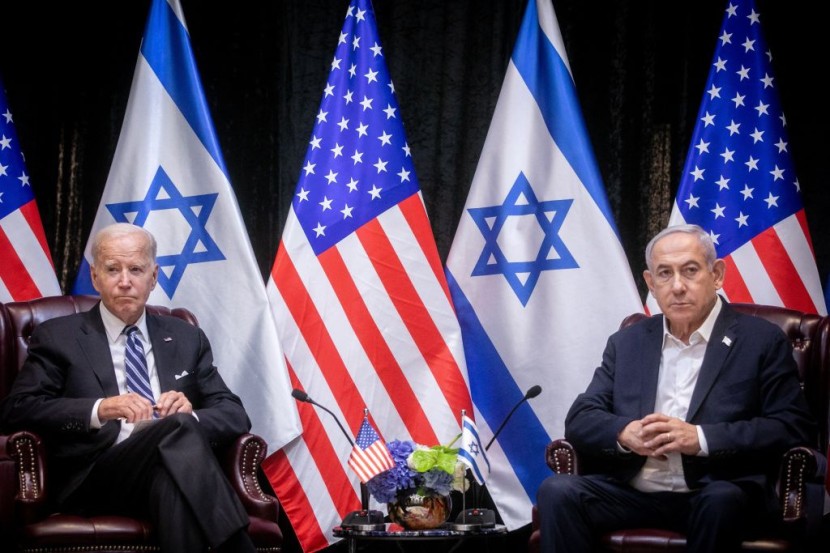
As Israel sent more tanks on raids into Rafah on Wednesday, the country predicted its war in Gaza would continue well after the US presidential election, following a statement from Washington claiming the Rafah assault did not amount to a major ground operation that would trigger a change in US policy.
National Security Adviser Tzachi Hanegbi said the Israeli military controls three-quarters of the buffer zone on the Egyptian border and aims to control all of it to prevent Hamas smuggling in weapons, according to Reuters.
Hanegbi added that the fighting in Gaza will carry on through 2024, at the very least, suggesting Israel is not ready to end the war.
"The fighting in Rafah is not a pointless war," Hanegbi determined while explaining that the aim is to end Hamas rule in Gaza and stop its attacks on Israel.
Despite an order from the International Court of Justice to end its attacks on the city, Israeli tanks still moved into the heart of Rafah on Tuesday, where Palestinians have sought refuge from bombardment everywhere else.
The World Court said Israel had not explained how it intends to keep evacuees from Rafah "safe" while "providing food, water, and medicine."
Its ruling also called on Hamas to release hostages taken from Israel on Oct. 7 immediately and unconditionally.
Palestinian residents in Rafah said Israeli tanks had pushed into Tel Al-Sultan in the west, Yibna, and near Shaboura in the center before retreating towards a demilitarized zone on the border with Egypt, rather than stationing onsite as they had previously.
"We received distress calls from residents in Tel Al-Sultan where drones targeted displaced citizens as they moved from areas where they were staying toward the safe areas," said the deputy director of ambulance and emergency services, Haitham al-Hams.
19 civilians have been killed in Israeli air strikes and shelling across Gaza, according to Palestinian health officials.
Israel continues to accuse Hamas militants of hiding among civilians, while the militants deny the allegation.
Health Minister Majed Abu Raman has stressed to Washington the importance of pressuring Israel to open the Rafah crossing to aid, revealing Israeli authorities gave no indication they were planning to do so anytime soon, despite patients in besieged Gaza dying from lack of treatment.
Over 30 countries at a World Health Organization meeting in Geneva condemned Israel's attacks on hospitals in Gaza and demanded more scrutiny of its role in the enclave's health crisis.
Israel's ambassador reiterates time and again that Hamas, who are "deliberately putting the safety of patients at risk by using health facilities for military purposes," are to blame.









